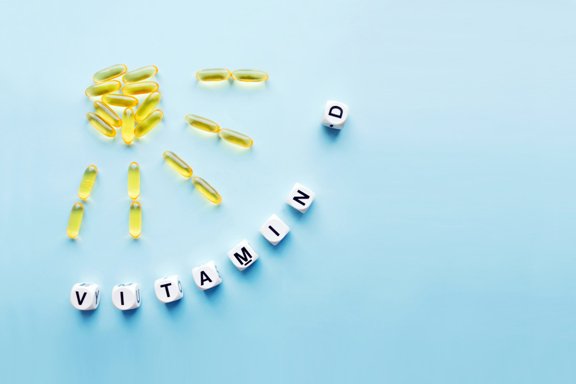Vitamin D deficiency may affect over 50% of elderly Americans. Those who are elderly, have dark skin, are homebound, or live in an institution like a nursing home are more likely to be lacking vitamin D.
We call Vitamin D the “Sunshine Vitamin” because our skin generates vitamin D from the ultraviolet energy of UVB rays found in direct sunlight. Unfortunately, sun exposure also increases your risk of getting skin cancer. Medical professionals recommend you cover up or use sunscreen when going out into the sun, limiting your ability to get enough daily vitamin D.
I developed vitamin D deficiency from taking a medicine that caused a burning rash whenever I was exposed to sunlight. After years of avoiding direct sunlight and wearing heavy sunscreen, my vitamin D level dropped to the point that I needed supplementation.
After gastric bypass surgery, many people become less able to absorb fat-soluble vitamins like vitamins D, A, and E, eventually requiring supplementation.
Inflammatory bowel disease or prescription medicines like prednisone, anticonvulsants, or the weight loss drug Alli® can also increase the risk of vitamin D deficiency.
Vitamin D plays an essential role in maintaining the strength of your muscles and bones, with deficiency contributing to thinning bones, muscle weakness, and falls.
According to Dr. JoAnn Manson, professor of medicine at Harvard Medical School and Brigham & Women’s Hospital, there is evidence that vitamin D boosts your immune response to viral infections and has a calming effect on inflammation.
People testing positive for COVID-19 hospitalized with severe lung symptoms are more likely to be significantly deficient in vitamin D than people with mild symptoms.
Most recommendations of supplementation with vitamin D is 800-1000 IU daily. Some researchers suggest that with stay-at-home orders in place in response to the coronavirus pandemic, 1000-2000 IU per day of vitamin D is a more reasonable target.
Unfortunately, it’s hard to get enough vitamin D from just your diet. The best source is fatty fish such as salmon, canned tuna, and sardines, which have about 300 units of vitamin D per 3.5 ounce serving. The next best vitamin D source is fortified milk, with up to 100 units per cup.
In the 1930s, the United States fortified cows milk with vitamin D to combat rickets, a disease that caused soft bones and deformed legs
How can you find out if you need a vitamin D supplement? A simple blood test can help determine how much vitamin D is present in your body. A healthy level is 20ng or above; I was deficient because my vitamin D blood level was 12ng.
Replenishing the vitamin D in your body requires taking concentrated vitamin D once a week for 8-12 weeks, followed by a daily maintenance dose. To start, I took 50,000 units (IU) of vitamin D once a week for eight weeks. Then, I switched to 2,000 IU daily until I was able to stop the medicine that caused my sun sensitivity.
With emerging evidence of vitamin D deficiency, possibly increasing the risk of breathing problems from COVID-19, I restarted vitamin D supplementation with 1000 IU every day. Should you?
Here Are 5 Tips on Getting Enough Vitamin D:
- Include vitamin D-rich foods in your diet.
It’s hard to get adequate Vitamin D just from your diet. Most foods contain only small amounts of vitamin D unless they have been fortified. Egg yolks, tuna, and salmon are the best sources of vitamin D, along with fortified foods like milk, yogurt, and fortified orange juice.
- Expect to need a vitamin D supplement.
The National Osteoporosis Foundation and the North American Menopause Society both recommend 800 to 1000 IU daily of vitamin D for people age 50 and older. People who are obese may need 2-3 times that amount.
- Supplement with 1000-2000 IU of D3 (cholecalciferol) daily.
With 1300 IU in each tablespoon, cod liver oil is the most concentrated vitamin D supplement available. Thankfully, there are less fishy tasting alternatives available today.
- Avoid taking Alli®, a non-prescription weight loss medicine.
The fat-blocking action of Alli® interferes with your body’s ability to absorb vitamin D from your intestine.
- Get outside.
UVB radiation from sunlight on bare skin produces vitamin D in your body. Due to an increased risk of skin cancer, diet and supplements are preferred over sun exposure.


